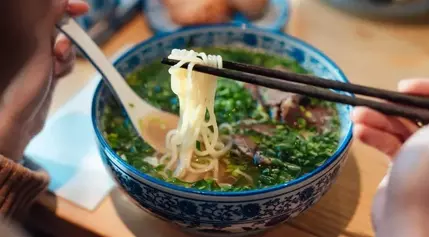Lifestyle

Reclaiming the Narrative: Embracing MSG and Celebrating Asian Cuisine
The history of Chinese food in America has been marred by misconceptions and racial biases, with the term "Chinese Restaurant Syndrome" (CRS) perpetuating harmful stereotypes. However, a growing movement of chefs, authors, and activists are challenging these outdated notions, reclaiming the narrative, and celebrating the truth about MSG and the richness of Asian cuisine.Unraveling the Myths and Embracing the Truth
The Troubling Origins of "Chinese Restaurant Syndrome"
The term "Chinese Restaurant Syndrome" was coined in 1968 in a letter published in the New England Journal of Medicine (NEJM), which claimed that some people experienced symptoms like headaches and heart palpitations after eating Chinese food made with monosodium glutamate (MSG). Despite the letter being later determined to be fraudulent and completely false, the racist notions it put forth have had lasting impacts, perpetuating stigma and mistrust against MSG and Chinese/Asian food.For generations, the myth of CRS has persisted, with many people, including Asian Americans, believing that MSG is unsafe and should be avoided. However, the Food and Drug Administration has long since determined that MSG is not harmful and is safe for consumption.Reclaiming the Narrative: Asian Chefs and Authors Take a Stand
Chefs and activists across the country are now demanding accountability and an end to the harmful stereotypes of Chinese cuisine and culture. Cookbook authors and food journalists, many of whom are Asian American, are at the forefront of this movement, using their platforms to challenge misconceptions and reclaim the narrative around MSG and Asian food.Celebrity chef Clarice Lam, author of "Breaking Bao," points out that "it's actually in a lot more food and snacks than you think, and yes even American snacks like Pringles have MSG." Yet, these Western foods are not unfairly stigmatized in the same way. As Betty Liu, surgical resident and author of "The Chinese Way," states, "Words have power, and when they're published by one of the 'gold standard' peer-reviewed medical publications [such as the NEJM], they make reverberations. The harmful effects of MSG have since been debunked, but we're still seeing the impacts of the original 'syndrome.'"The Truth About MSG: A Safe and Versatile Ingredient
Contrary to the misconceptions, MSG is not a poisonous or toxic artificial substance. It is a naturally derived food additive that is similar in nature to salt, made from the same compound as salt, sodium, with added umami flavor thanks to glutamic acid. This compound is found naturally in many foods, including tomatoes, cheese, and even scallops, meats, and mushrooms.While it is possible for some people to have sensitivities to MSG, just like any other ingredient, numerous studies have proven that MSG is safe for the vast majority of people to consume. The stigma against MSG has been unfairly directed towards Chinese and Asian cuisines, even though it is used in a wide range of dishes and cuisines around the world.Embracing MSG in the Kitchen: A Culinary Transformation
As more people learn the truth about MSG, the author of this article has personally embraced it in their own cooking and baking, incorporating it into a wide range of dishes to add a rich umami flavor. This journey has not been an easy one, as the author even had to hide their use of MSG from their own mother, who was initially hesitant about using it.However, the author has gradually changed their mother's mind, and they now plan to use MSG to upgrade some of their holiday dishes, like roasted turkey. The author also suggests experimenting with adding MSG to cocktails and mocktails to create an extra dirty martini or other umami-packed beverages.The Call for Accountability and Change
The time for reckoning is upon us. While Asian cookbook authors and activists continue to fight the stigma against MSG and Chinese/Asian cuisine, the NEJM, the publication that originally coined the term "Chinese Restaurant Syndrome," has yet to fully address its role in perpetuating this harmful stereotype.It is time for the NEJM to take responsibility, acknowledge the harm it has caused, and address the stigma it continues to perpetuate. For the rest of us, we can fight the stigma right from our own kitchens, embracing MSG and celebrating the rich diversity and flavors of Asian cuisine.

